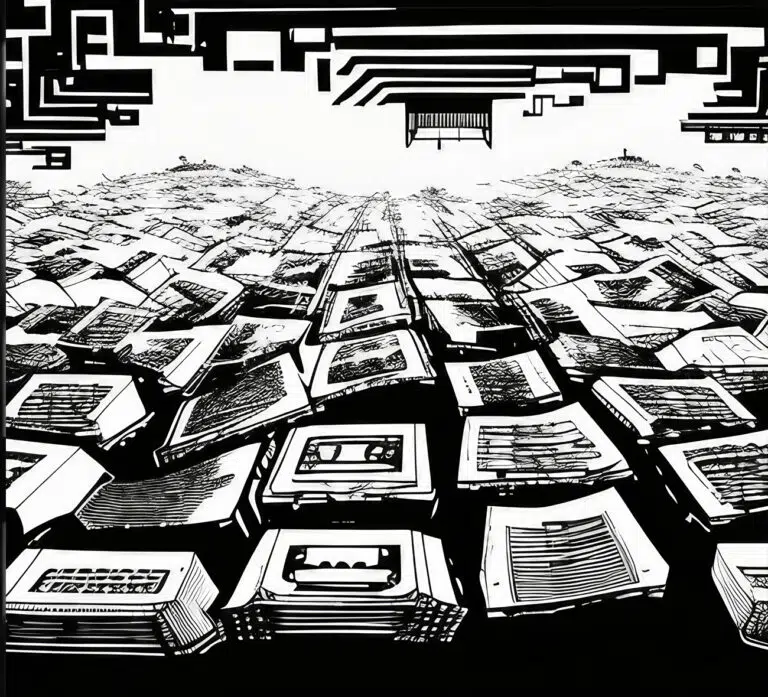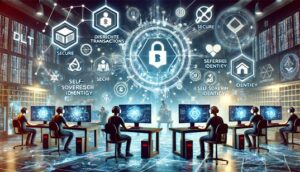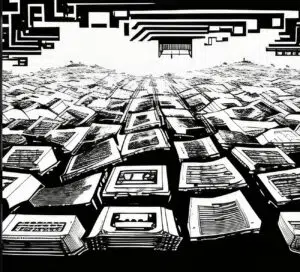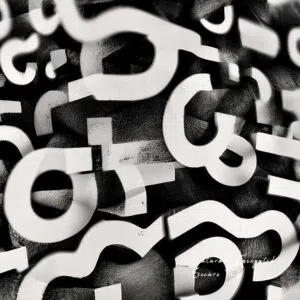After a prolonged period of pandemic-related restrictions, Asian countries eventually followed suit in abandoning masks and social distancing measures. As a result, we witnessed the revival of massive social and entertainment events reminiscent of pre-2019 times. In particular, it was the return of grand music festivals that helped restore a sense of normalcy.
These festivals, attracting hundreds of thousands of music enthusiasts who indulged in their favorite artists, music, and alcohol, were a significant marker of life returning to what it was before the Covid era. Among the recently concluded festivals were Coachella, Rolling Loud, Clockenflap, Creamfields, and many more.
While it is true that our routines and lifestyles have returned to pre-pandemic levels, it’s worth noting that the past few years have seen significant technological advancements, unlike any other time in recent decades. As we find ourselves experiencing events similar to those before the pandemic, many couldn’t help but ponder how blockchain and NFTs could revolutionize the way we create, share, and enjoy music. In this article, we will delve into the potential impact of NFTs on music festivals, the dynamics between artists and fans, and explore various types of music NFTs.
Music creators and artists are experiencing a newfound sense of empowerment, thanks to NFTs. Independent artists suffer from several pain points in the industry, like lack of monetary support, reliance on intermediaries like records companies and distributors, difficulty managing ownership of work and creation, delay in paychecks, etc. Even for famous artists, intermediaries steal a massive cut of their earnings from their work. IP ownership is also a potential problem when it comes to an argument between artists and management. NFT, the technology, is the cure for these all.
First, NFT increases creators’ control over their work, allowing them to maintain ownership, gain direct monetization, and increase exposure. Songs, albums, or even IPs, like the name of the music group, can be secured ownership in the form of NFTs to prevent artist managers or management company stealing or controlling the above assets. Creators can now easily create new work in NFTs and directly sell it to fans with the help of the NFT platform, generating direct monetization from their creation without intermediaries. And more, with the common NFT standards nowadays, these creations are more easily spread across platforms and applications, allowing artists to gain more exposure and reach more potential fans.
Second, smart contract capabilities allow creators to capture value from secondary sales and ensure oversight of fair compensation and agreements between the artist and company. Have you imagined how your favorite singer gets paid for his work? Album sales, paid purchases, also from platforms like Spotify and Apple Music for a fee based on the streaming time, and then processed by the intermediaries with lawyers to calculate and operate with the royalties earned, which as a result, the creators only gain about 20–30% the revenue they earned from their work, where others are eaten by companies, managers, lawyers, and etc. With a smart contract, every penny earned from purchase, paid-to-listen, monthly pass, or all other revenue generation through the Internet you can think of will be executed at the moment and sent to the creator’s wallet.
Intermediaries are undoubtedly important in the industry, at least to those famous artists who need someone to help care for the business. Thus, a precise and transparent distribution of money is required. A smart contract is a trustworthy, cost-effective option, to act as a trustful 3rd party to secure and execute the agreement.
For music lovers, NFTs unlock more potential for their music experiences with their idols, far much better than the current one-way relationship.
First, it allows fans to collect rarities of virtual merchandise, exclusive tracks, or artist collaborations, such as digital memorabilia from the festivals. With NFTs, these rare editions are proven in condition, value, and authenticity. Improving the above advantages also encourages creators and artists to issue more of these editions to their fans.
Second, the NFTs issued by artists and creators can allow users to access exclusive content or experience, such as virtual meet-and-greets or backstage passes, available only to NFT holders. This also adds more privilege and self-recognition of being a fan.
Third, fans can now directly support their favorite artist by purchasing their NFTs, empowering creators, and fostering a closer connection between artists and fans. As artists and creators can benefit from more direct monetary support, this is more possible for everyone to become full-time artists or creators. You don’t have to be famous. What you need are only 1,000 true fans who will support USD 10 monthly for your creations and works. And remember, we are talking about 1,000 true fans worldwide, not just in your town or country. Sounds much more reachable and possible, right?
Imagine attending an NFT-powered music festival like Coachella, Clockenflap, or Rolling Loud. These events could offer unique festival experiences. First, immersive virtual concerts cater to those who cannot attend in real life. Attendees can still participate from geographical restrictions, where organizers can earn extra money at a low marginal cost. Interactive installations and virtual reality experiences enabled by NFTs could create more visual and artistic effects for the festival. Festival-goers could collect limited edition merchandise, digital souvenirs, and virtual festival environments as NFTs.
Organizers can also personalize rewards and experiences for attendees based on their NFT ownership, creating a more tailored and memorable festival experience. For example, discounts on entry and extra shots of drinks or souvenirs for those who have joined the past Coachella, indicated by their old tickets in their wallet. These active participants earn it with their ongoing support. Plus, introducing gamification elements, such as quests and challenges, would keep attendees engaged, allowing them to earn NFT rewards and unlock exclusive content.
NFT music festival/concert tickets are another exciting development in the music industry. Ticket purchase, transfer, claiming, preservation, etc., is always the most annoying and troublesome part of the concert or music festival experience. Here are what NFT helps.
First, combating ticket fraud is now possible through secure and verifiable ticket ownership, unique identifiers, and a transparent secondary market. As everyone can verify and prove tickets on the blockchain, participants can be saved from being scammed. Even if the ticket is issued in the form of NFT, it is still the same entry experience of scanning the QR code on your phone at the entrance. Increase in security without extra cost on understanding.
Second, NFT allows easy and secure transfer of tickets, allowing fans to resell or gift their tickets with minimal friction and no risk of counterfeits. Holders can easily list their tickets on trustful secondary markets and look for a potential sale, with the advantage of increased exposure and dynamic pricing. For those looking for tickets in the secondary market, you can directly look at all possible tickets on sale and their respective pricing and purchases in simple clicks.
Third, NFT allows personalized experiences by offering customizable ticket designs, tiered access levels, and loyalty rewards. The ticket can have your favorite line-up artist be the cover of your ticket, which gives more unique value to the users. Holders can also gain potential access or rewards by keeping it in their wallet, like using it as access to after parties who only target ticket holders.
NFTs are poised to play a significant role in the future of the music industry. From revolutionizing how artists create and monetize music to offering fans unique, immersive experiences, these digital assets transform how we engage with music. However, balancing innovation with potential challenges will be crucial to ensuring the successful integration of NFTs into the music landscape.
We’re really excited about how music festivals could be more fascinating with the use of NFTs. We cannot anticipate how much more fun it can be. Still, at least a more convenient and seamless experience in handling tickets and access issues already makes us more enjoyable during the time!






